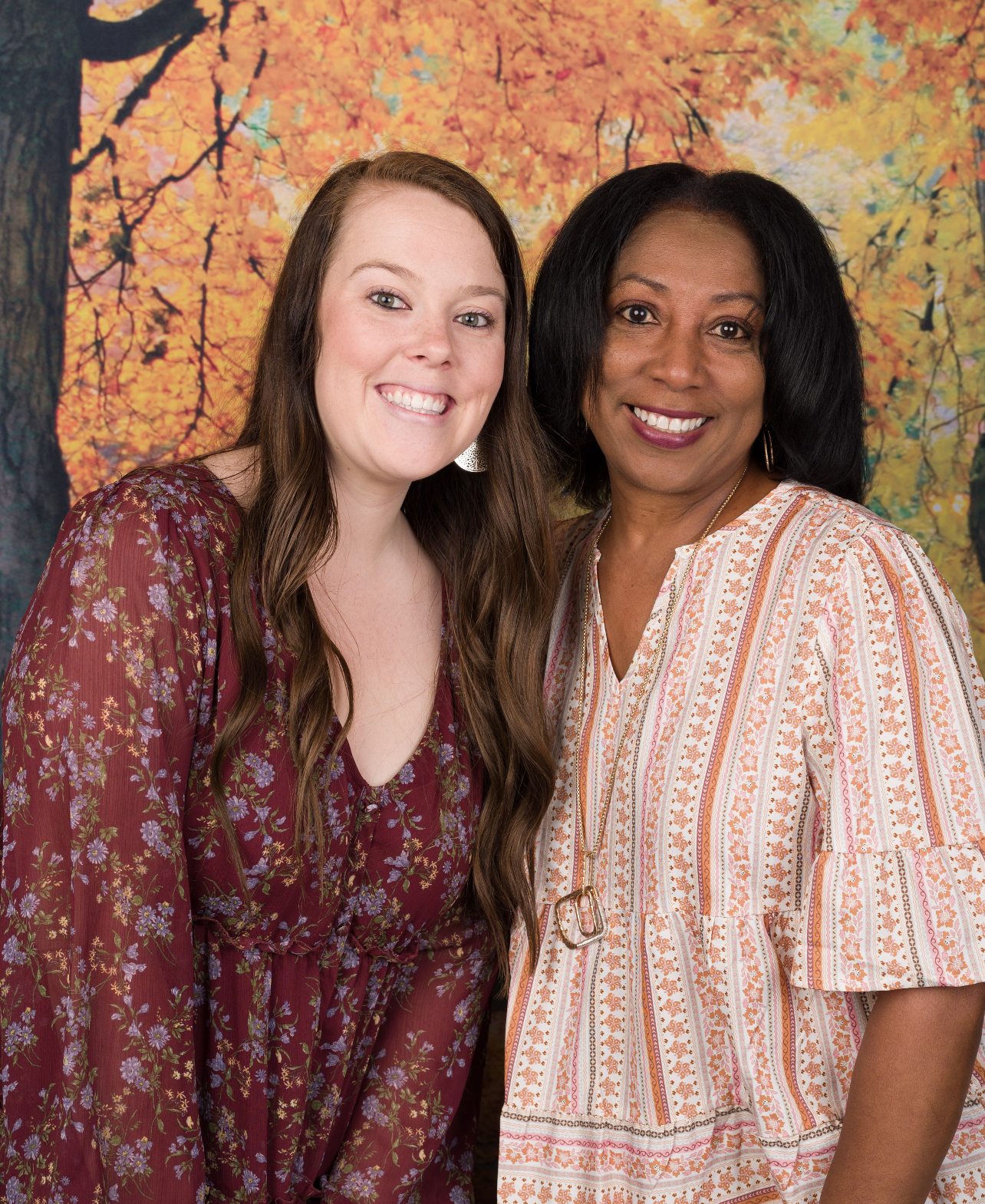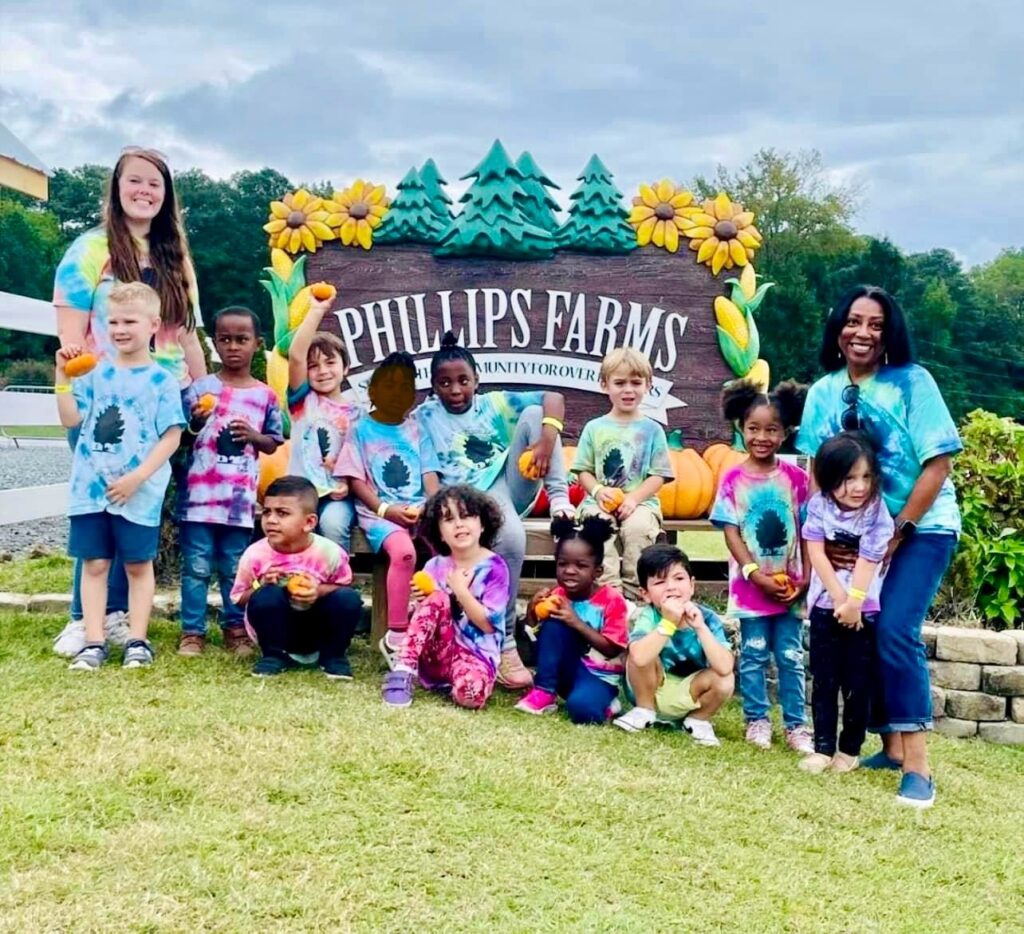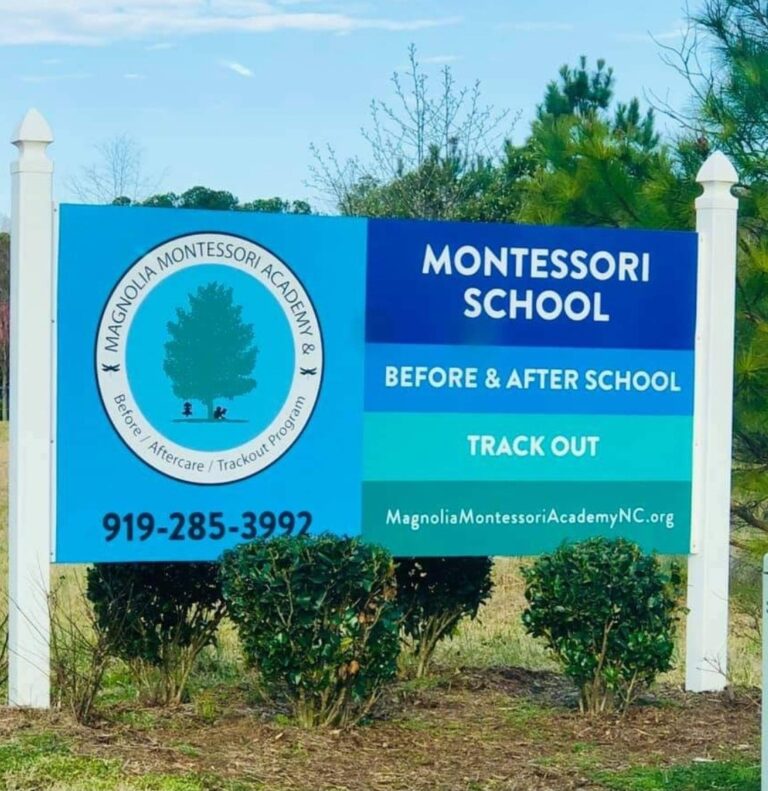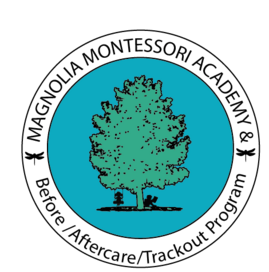Welcome to Magnolia Montessori Academy Before/Aftercare/Track out Program
ABOUT US
We are here to help parents raise happy and healthy children

We all need support through the most important period of our children: the early years
We’re a Five Star Montessori Academy in the town of Holly Springs, NC. We strive to uphold and promote the Montessori approach to learning by catering to needs of the individual child while balancing the needs of the group. We hope that you will contact us to learn more about our school and the Montessori approach to learning.
Goals of Montessori Education
- To foster competent, responsible, adaptive citizens who are lifelong learners and problem solvers.
- To promote learning in an inquiring, cooperative, nurturing atmosphere through self- and teacher-initiated experiences.
- To support learning through the senses, by manipulating materials and interacting with others, leading to the abstract understanding of ideas

What We Offer
At Magnolia Montessori Academy we believe that quality early childhood education is key to helping children develop their innate love of learning, sense of self and social skills necessary to lead an enriching life in the greater community. It is our hope that you thoughtfully consider several factors when deciding on the right fit for your family.
we’re here to all your questions
FREQUENTLY ASKED QUESTIONS (FAQS)
What is “Montessori”?
The name Montessori usually refers to the educational method developed by Dr. Maria Montessori, an Italian physician. Dr. Montessori observed that all children were driven by inherent tendencies which expressed themselves particularly intensely at certain ages — for example: exploration, communication, movement, and a desire for self-perfection. She developed a plan of education that would respect and follow the child’s inner guide to development and work in harmony with the child’s own natural tendencies towards independence and learning.
Are all Montessori schools alike?
No. Although there are Montessori schools all over the world, all Montessori schools are not alike. Dr. Montessori’s vision for children spread so quickly that soon the name “Montessori” became part of the public domain and could not be given a copyright. Differences in the quality of teacher-training, school standards, and adherence to the Montessori philosophy all affect the quality of a Montessori school. Schools may be organized and governed very differently, and this too can affect what you see in the program itselfType your paragraph here.
What curriculum is in a Montessori class?
Basic subjects such as language, math, history, geography, biology, chemistry, geometry, music, and art are introduced in Montessori classes first in the 3-6 programs. Elementary students, by nature, want more answers to life’s questions. The “how, where, what and when” questions are expanded into their environment and beyond. They want to classify, group, and get control of their world. The elementary curriculum incorporates that explosion into knowledge from questions with materials that name, classify, and redefine the natural world in which the child has joined. .
What do the children do in a Montessori program?
Basic subjects such as language, math, history, geography, biology, chemistry, geometry, music, and art are introduced in Montessori classes first in the 3-6 programs. Elementary students, by nature, want more answers to life’s questions. The “how, where, what and when” questions are expanded into their environment and beyond. They want to classify, group, and get control of their world. The elementary curriculum incorporates that explosion into knowledge from questions with materials that name, classify, and redefine the natural world in which the child has joined. .
Why mixed age groups?
If you want children to become responsible young adults they must have opportunities to practice at a young age. A mixed age group allows children of different ages and abilities to help each other and thus learn responsibility. In a mixed age class it is not always the teacher who solves problems. In fact more often it is not. Instead it is another child. This is not possible in a class with children all of the same age and abilities. Since no two children grow and mature in exactly the same way the materials available to the children are varied and numerous. The proper activity for the right moment is there to be introduced to the child when he is ready or chosen by him as his interest dictate. Thus, no child is held back if his skills indicate a need to move on, nor is a child pressured to keep pace with skills he is not yet ready to master. The sensitive periods of each child can be capitalized upon in a multi-age classroom
Get in Touch
Got a question? We’d love to hear from you . Send us a message and we’ll respond as soon as possible.
Send Us A Message

